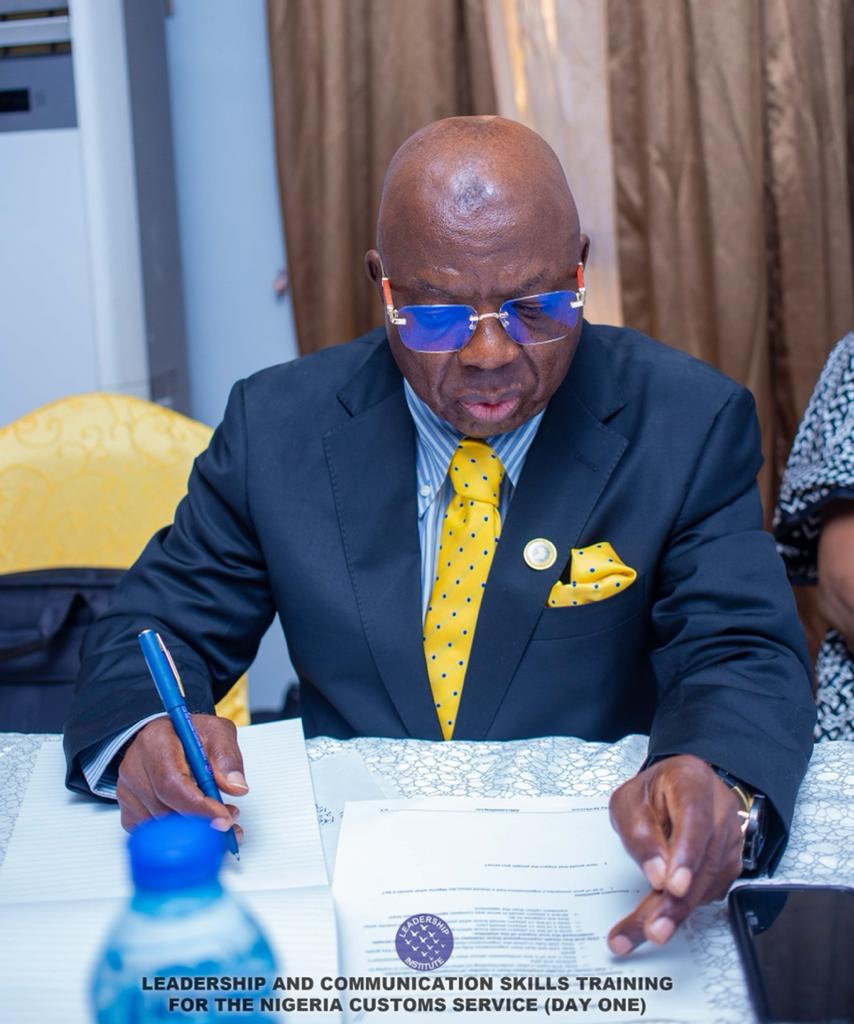 Meet Iyorwuese Harry Hagher
Meet Iyorwuese Harry Hagher
Iyorwuese Harry Hagher is a venerable African scholar, multi-disciplinary researcher, public intellectual, novelist, poet, non-fiction writer, and sought-after public speaker, who commands distinction in the spheres of academia, authorship, and leadership. With over 45 years as researcher and writer, his extensive published works span; drama, politics, leadership and philosophy.
Born on June 25, 1949, in Nigeria, Hagher pursued a rich academic journey. He studied English, Drama, and Political Science at Ahmadu Bello University Zaria, where he earned his BA (Hons), MA, and Ph.D. degrees. His scholarly pursuits extended beyond the classroom as he conducted research and shared his knowledge through teaching at both Ahmadu Bello University Zaria and the University of Jos.
His tenure as a professor of theatre and drama at the University of Jos solidified his influence in shaping the academic landscape, where he is renowned for his pioneering works on Kwagh-hir Theatre, and the first scholar to give Theatre for Development (TFD) a scholarly reputation in Nigeria. His attempt to document, contextualize and theorize Kwagh-hir led to its popularization globally, and would later be inscribed on the UNESCO representative list of the Intangible Cultural Heritage of Humanity in 2019. As Pro-Chancellor at Afe Babalola University, he contributed significantly to its ascent as one of Africa's preeminent institutions.
A polymathic figure, Hagher’s literary oeuvre combats societal maladies. His narratives transcend geographical and cultural boundaries. His theatrical prowess goes beyond art; it emerges as a forceful narrative challenging the realms of injustice, exploitation, and moral degradation. His creative endeavours serve as bold declarations, compelling the audience to scrutinize societal injustices and hold accountable the forces responsible for their plight. Beyond the allure of his literary aesthetics, Hagher's theatre resonates with a resounding call to question prevailing social, political, and hegemonic structures that perpetuate oppression and exploitation of the vulnerable.
As a man of the people, Hagher manifests his commitment to education as a transformative force. Instituting academic excellence awards for educationally disadvantaged communities in central Nigeria underscores his dedication to fostering intellectual advancement. In a 1999 interview with Thisday newspaper, he articulated his ethos: “I love people and enjoy helping the downtrodden. This, in fact, is my artistic credo: to side with the underdog, the oppressed, the poor, and victims in all situations. And if, with time, the victims of yesterday become the oppressors of today, I will still remain in the pit with today’s victim.”
Hagher's leadership transcends literature, embodying Servant Leadership principles to advocate for compassionate and responsible governance in Nigeria and Africa. As a globally recognized advocate, he is a sought-after speaker who has spoken at the UN, as well as various international, national, and corporate events. Widely respected, his opinions are highly sought after by the media, making him a prominent voice in discussions on effective and ethical governance practices.
As a living embodiment of Theatre for Development, Hagher seamlessly infuses it into every facet of his endeavours for maximum impact. In 1981, serving as the inaugural Director of the Benue Council for Arts and Culture, he orchestrated a groundbreaking initiative that served as a powerful antidote to the escalating ethnic tensions, dispelling the rising discord. He recruited dancers and musicians from the Tiv, Idoma, and Igala ethnic groups, orchestrating a harmonious fusion of choreographic patterns from major dances across the tribes. As these meticulously rehearsed performances were staged in various communities, a profound transformation took place. The sight of traditional dances and songs being flawlessly executed by individuals from different ethnic backgrounds left the onlookers awe-struck. This artistic revelation served as a powerful testament to the shared cultural traits among the diverse groups, uniting them under a common cultural identity.
In his role as Minister of State for Health, he harnessed the power of drama to confront the HIV/AIDS epidemic head-on. Specifically, in Benue, he collaborated with Kwagh-hir artists to produce Anakande, a production that proved instrumental in addressing the global epidemic, especially during a period when Benue State faced the highest prevalence rate in Nigeria.
Transitioning into his role as Nigeria's envoy, he actively championed Nigeria's soft power and cultural diplomacy. Leveraging theatre, drama, and poetry, he skilfully utilized the arts to fortify bilateral relations between Nigeria and host countries. Within diplomatic circles, he is celebrated for his prowess in cultural and citizenship diplomacy, earning commendation from Nigeria’s Ministry of Foreign Affairs for his impactful non-fiction book, Nigeria: After the Nightmare.
In the year 2000, Hagher founded the first Leadership Institute in Nigeria, a visionary initiative aimed at empowering the next generation for leadership roles and nurturing harmonious co-existence. Swiftly outgrowing national confines, his impact reached global scales with the establishment of the Africa Leadership Institute in the United States of America in 2012. Collaborating with fellow African leaders in the diaspora, Hagher spearheaded the cultivation of a leadership ethos marked by compassion and responsibility that resonates across the entire continent.
Over the past quarter-century, Hagher has been an unwavering force in collaborating with leaders, dedicating his efforts to elevate the standards of leadership in Africa. His commitment extends to fortifying good governance, democracy, human rights, and fostering a compassionate and united community.
Iyorwuese Harry Hagher is a recipient of one of Nigeria’s highest honours, Officer of the Order of the Niger, for his role in peacebuilding in Nigeria, especially in negotiating for peace among the warring ethnic groups of Central Nigeria in 2003. In 2020, he was awarded the Nigerians in Diaspora Integrity Ambassador at the Gani Fawehinmi Impact and Integrity Awards for his selfless service to humanity. He is also an ANA Prose Prize winner, amongst a litany of other honorary awards and recognitions. He continues to inspire in his role as President of the Africa Leadership Institute, imprinting an indelible legacy on academia, literature, and leadership in Africa and beyond.